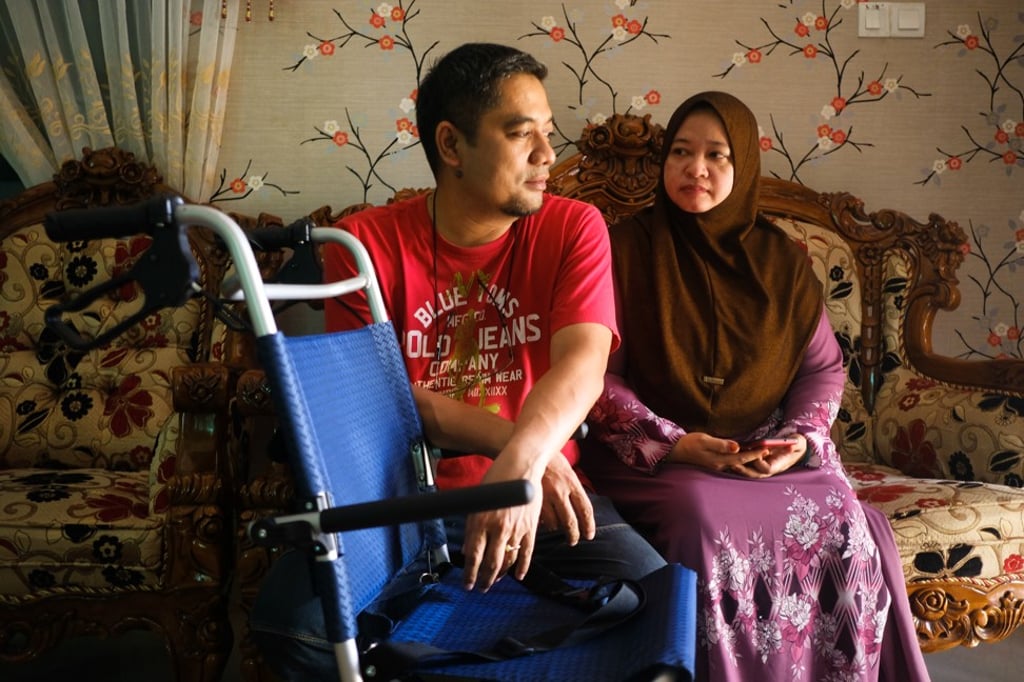‘Death is everywhere’: in Malaysia, a toxic river haunts sick children
- Last March, some 5,000 residents in Pasir Gudang fell ill from noxious fumes after a company illegally dumped chemical waste into the Sungai Kim Kim river
- A year on, victims of the crisis are calling for more action by the authorities, as the river continues to be a site of danger

Today, the 13-year-old hobbles around with a stick, unable to walk or stand for long periods. His legs shake uncontrollably and he feels tiny shocks of pain in his feet, in a condition called myokymia.
At Irfan’s boarding school, he does his daily prayers on a chair instead of a prayer mat, struggles up the stairs and spends most of his time studying science, his favourite subject. When the pain gets too much, he tells himself to ignore it.
Irfan counts himself as one of the lucky ones. At least his condition does not affect his brain or breathing.
The teenager is among 5,000 residents who fell ill after being exposed to toxic gases thought to have been caused when P Tech Resources, a firm that burns used tyres, illegally dumped 20 to 40 tonnes of chemical waste into the Sungai Kim Kim river on March 7 last year.
All 111 schools in Pasir Gudang, in the south of Malaysia, were closed as a result and hundreds of people were admitted to intensive care for symptoms including breathlessness, nausea and headaches.
